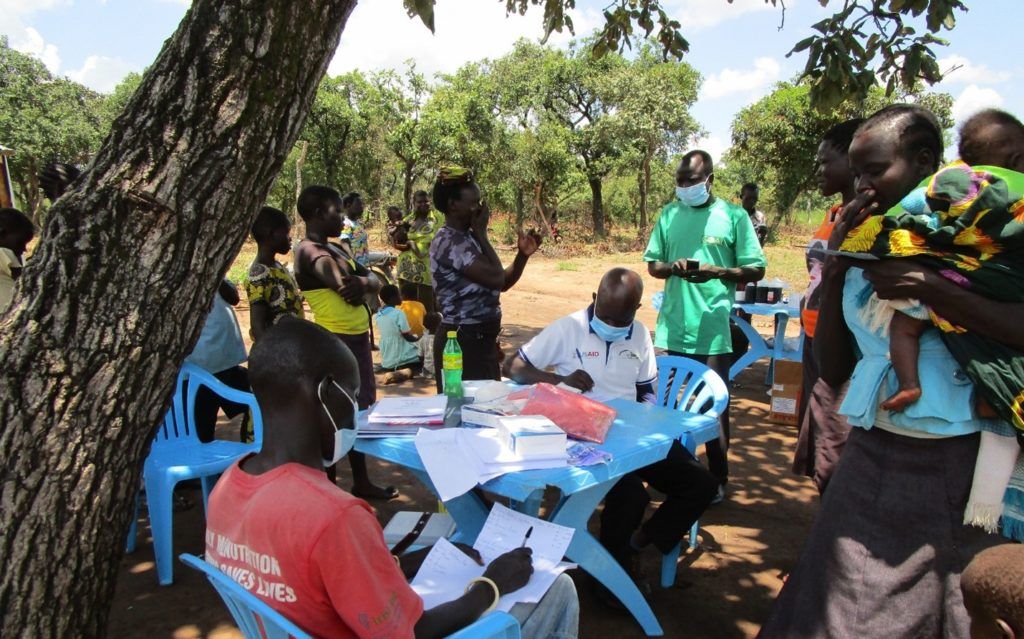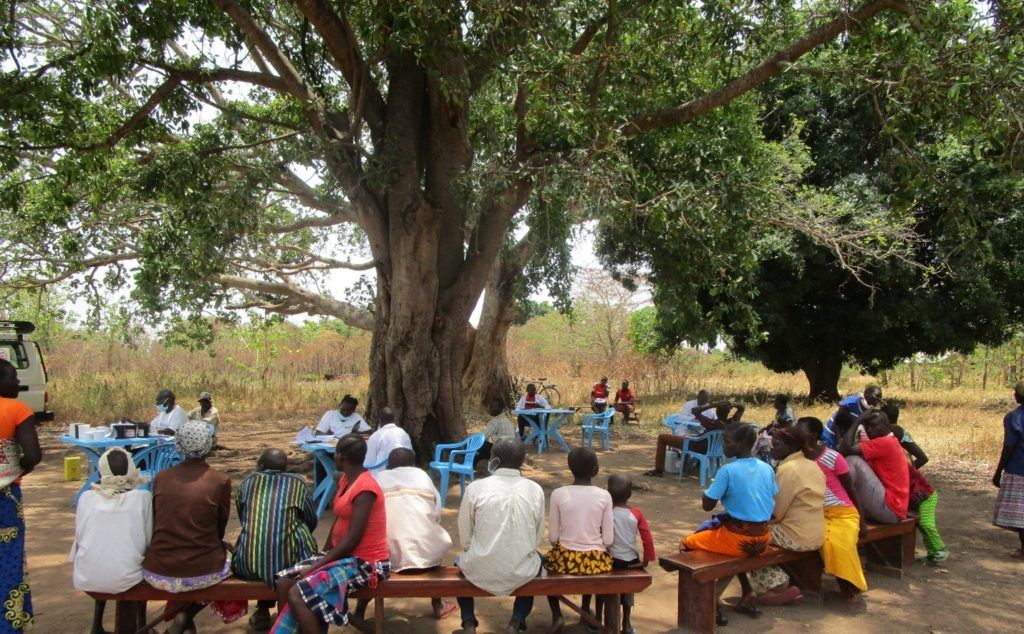 Stories
Stories
May 7, 2021 • 2 min read
In 2011, South Sudan became the newest country in the world. Since then, as its people embraced their independence, the country has struggled with civil war and instability.
Hundreds of thousands have lost their lives and over 1 million people have fled to neighbouring countries as refugees.
The conflict has also had a deep and lasting impact on the health care system in the country.
After conflict in the Kajo-Keji region in 2016, the health facilities were vandalized. Medicine and medical equipment were looted and many health workers and health facilities were forced to close their operations because of the outbreak of the war. In Kajo-Keji, only two out of 58 health facilities remained functional in the whole County (in Mere and Litoba).

Outreach clinic in Kajo-Keji consulting with community members.
Travelling to access healthcare
Most people were forced to travel to the national capital Juba or neighboring Uganda to receive healthcare.
These trips were long and dangerous as they were risking their lives in opposition-controlled areas.
On top of this, access to healthcare in the remaining hospitals in Mere and Litoba was limited due to a lack of services, medicine and staff. This caused the almost total collapse of the health care department in Kajo-Keji.
GOAL has been operational in the area since 1985, long before independence and throughout the decades long war with the north.
Outreach clinics in Kajo-Keji
With thanks to support from EU Humanitarian Aid (ECHO), GOAL has been operating a number of health facilities in Kajo-Keji since 2019.
This includes a full primary healthcare centre in Kansuk, three health care units and seven outreach clinics.
These facilities have greatly improved the quality of healthcare and the lives of the people in the region. There has even been a noticeable increase in the voluntary return of refugees back into Kajo-Keji.
The outreach and mobile clinics are particularly important for reaching those in need. Many people risk serious illness or death if they are not treated quickly. For pregnant women, travelling long distances or walking for hours to a maternity facility are neither safe nor practical. One village that has benefited from the outreach clinics is Kaya, a remote settlement over 40 miles from Kajo-Keji.

A large tree provides shade for a mobile health clinic funded by EU Humanitarian Aid.
In the heart of communities
Denis Yata, the head chief of Kaya village, says “All members of our community, from the village chiefs to the herdsmen are so grateful to GOAL and EU for their assistance.”
He continues, “We no longer have to risk our lives travelling mile after mile. When someone falls sick they can now get care and not die unnecessarily.”
Over 30,000 people in Kajo-Keji have benefited from these clinics including over 900 pregnant women.
The healthcare clinics have become more important than ever in the age of Covid-19. GOAL has been working to ensure care and information can be provided to communities who need it.
From time to time these services have been unfortunately impacted by security incidents in the area but our team persists with helping these communities.
